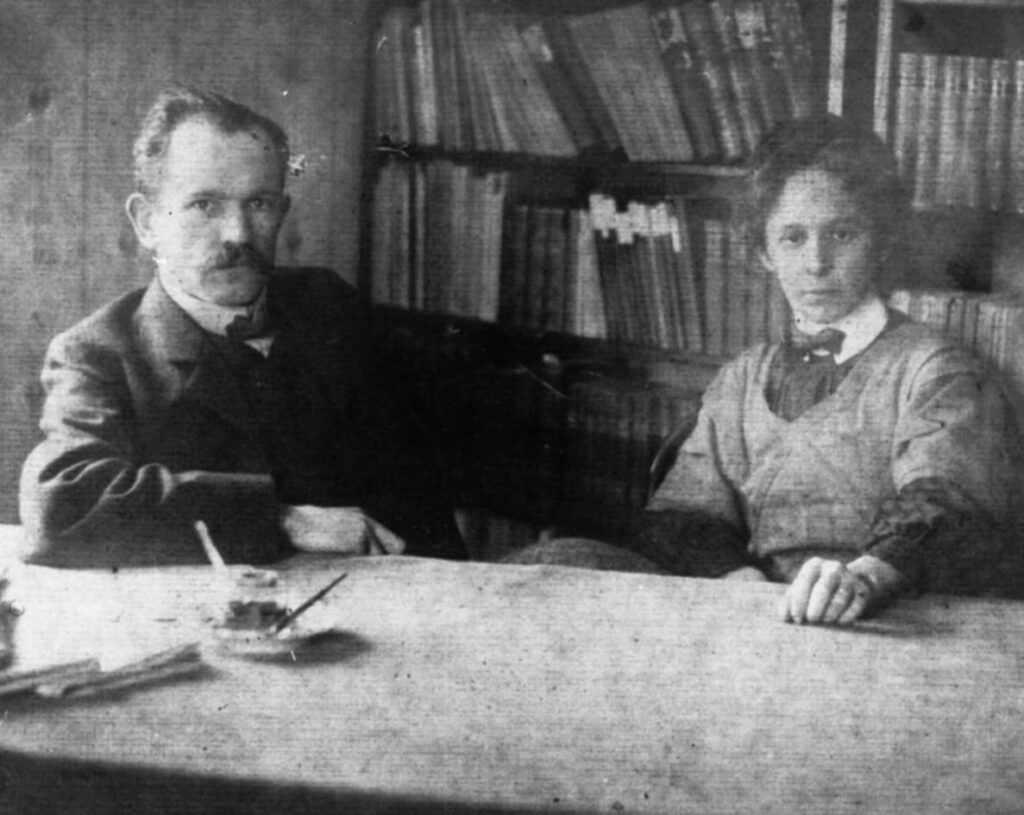Share Twitter Facebook Email Copy URL
“Red Rosa No. 1” – the revolutionary woman
She was the bogeyman of the Helvetic bourgeoisie, but she was also resented within the ranks of social democracy. “Red Rosa No. 1” (the second was Rosa Bloch) embodied the “revolutionary woman” in the eyes of many of her contemporaries. As such, she was the opposite of a “Swiss woman”. Rosa Grimm-Schlain was born in Odessa on 27 January 1875 into a well-off Jewish merchant family. She was twice divorced and she was a left-wing socialist, who later became one of the founders of the Communist Party of Switzerland (CPS). The bourgeois press, up to and including the “Grütlianer”, reviled her origins, her lifestyle and her appearance in a disparaging, misogynistic manner. They called “our adopted Rösli” an “exalted Russian”, a “poisonous toad” and a “hyena”, as well as ugly, old and skinny. Even her second husband, the Swiss Social Democrat Robert Grimm, the father of her two children, called her a bad mother and housewife after their divorce in 1916.

Why did this woman attract so much enmity? Rosa Grimm was one of the many Russian women who had come to Switzerland to study. At the beginning of the 20th century, she was one of the rare women who were politically active in the forefront in Switzerland and held leading positions in the workers’ movement. After her second divorce, the only thing she lived for was her political involvement. She first moved to Zurich, where she was arrested during the November riots of 1917. As she had become a Swiss citizen through her marriage, she could not be deported. She staunchly advocated for people to support the Russian Revolution and, after the founding of the Communist International, for the Swiss Social Democratic Party (SPS) to join it. Her next stop in 1919 was the city of Basel, as an interim, and later permanent, editor of the Basler Vorwärts and as a member of the executive committee of the cantonal party. In 1921, after the CPS was founded, she and Rosa Bloch were the only women on the new party board. The well-read Grimm, who had previously attended a drama school in Vienna and studied in Bern, though never completing her studies, headed the literary supplement of the Basler Vorwärts between 1921 and 1926. Her specialty was theater and literary criticism. In the dispute over “bourgeois” versus “proletarian” culture, she defended the need to acquire general knowledge for the class struggle – a position that was marginalized with the «bolchevisation» and stalinisation of the Communist Parties from the second half of the 1920s. Rosa Grimm’s second party-political commitment, beyond cultural issues, concerned women’s issues. She was a member of the women’s agitation committee of the CPS and campaigned for women’s suffrage and abortion without punishment, two issues that led to heated debates in the canton of Basel-Stadt in the 1920s. Rosa Grimm vehemently and trenchantly fought the “hypocritical morals of bourgeois society”, as well as the “petty-bourgeois mentality” of her male and female comrades.
Thanks to her knowledge of Russian and her acquaintance with Lenin and other leading Bolsheviks, she had close contact with the Soviet Union. She was delegated several times to international congresses and conferences. She was good friends with Clara Zetkin and Nadežda Krupskaja. In the 1920s she lived in Berlin for a while, and in 1930/1931 in Moscow, where she worked as a translator for the Communist International. She returned with criticism about the development of the Soviet Union, but remained a party member, although she was pushed into the background in the CPS in the 1930s. She rejoined the SPS during the Second World War. Rosa Grimm died impoverished near Zurich on 12 November 1955.
Brigitte Studer, historian and professor emeritus at the University of Bern, is an expert on the history of women and gender as well as on the history of international communism and Stalinism. She recently published La conquête d'un droit. Le suffrage féminin en Suisse and Reisende der Weltrevolution. Eine Globalgeschichte der Kommunistischen Internationale.



